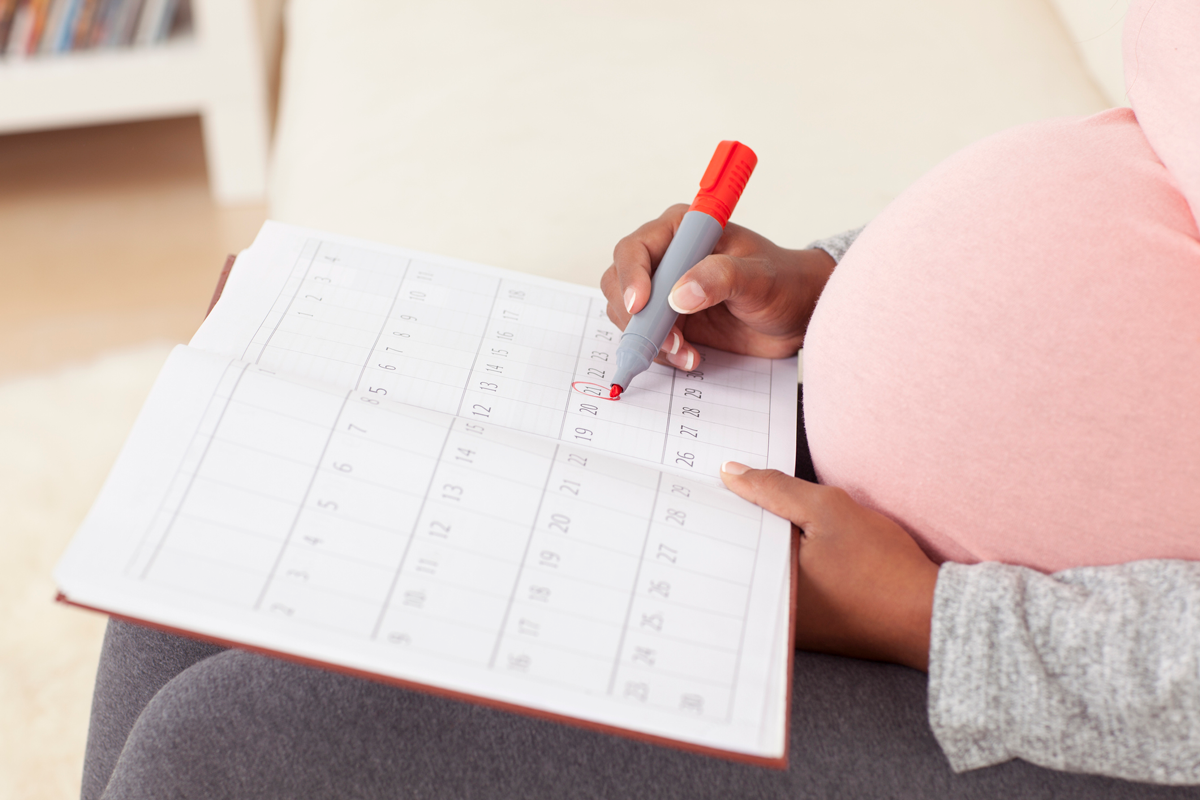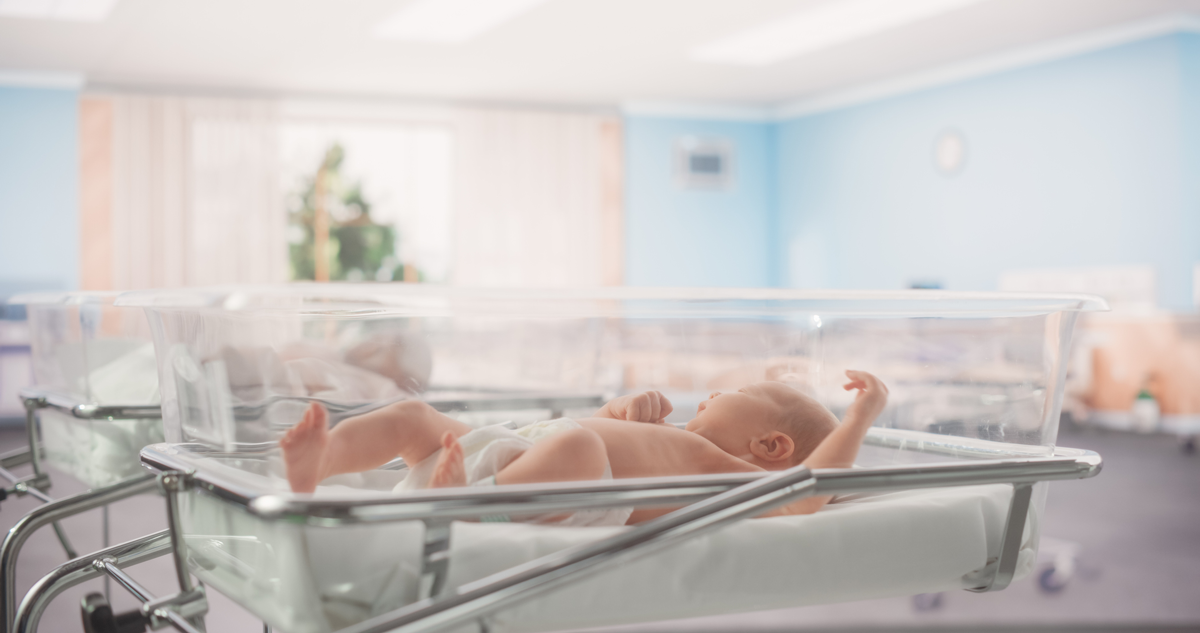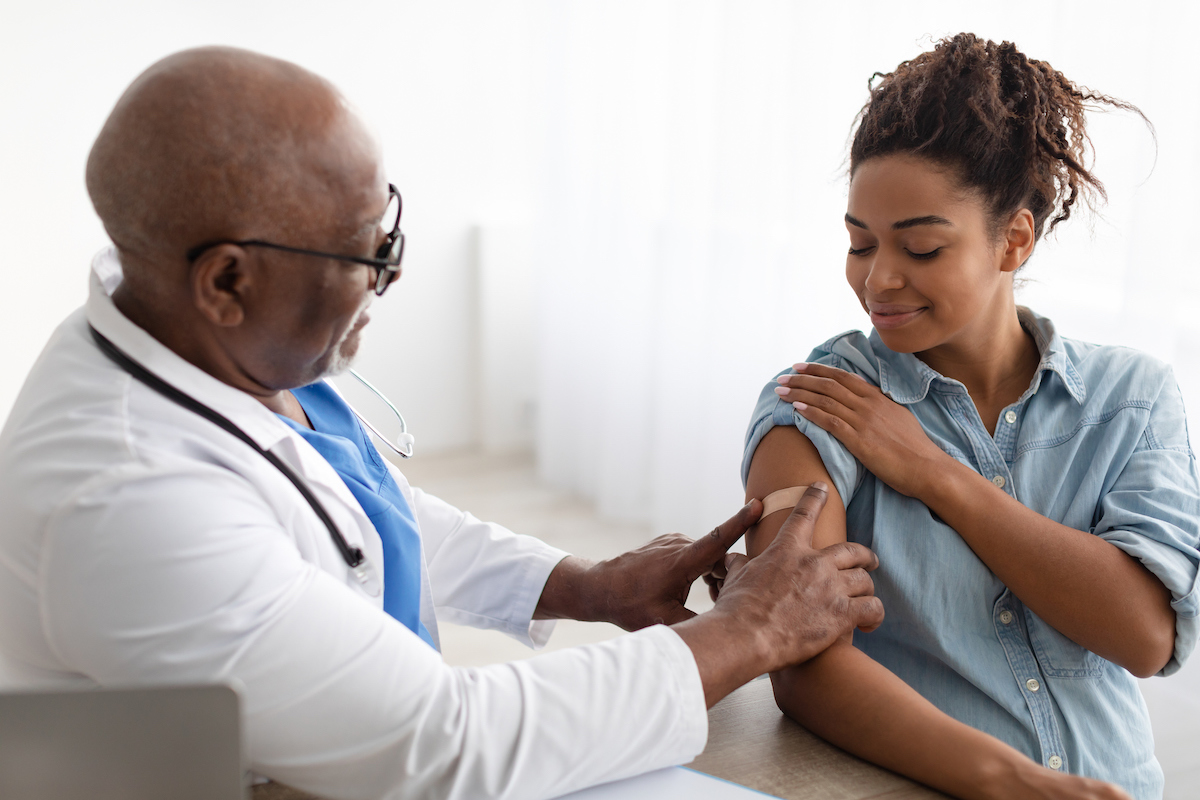In a very real sense, this newsletter was formed, shaped, and grown by COVID. And yet it’s been months since I wrote about it. COVID has, to a large extent for many people, faded into the background of our lives, like many other risks. But it’s not entirely in the background, and in the past few weeks there has been an uptick in the virus, and in the requests to write about it. So here we go! What’s going on with COVID, and how you might think about behavior now.
What is going on with COVID?
In short, there has been an uptick in COVID rates within the past few weeks. We no longer have a very comprehensive way to measure this — nationwide COVID tracking, which was never excellent, has gotten quite a bit worse. Even with this, there are a few ways we can get a sense of what is happening.
First, the graph below shows Google search volume over the past 30 days for the word “COVID.” You can see an increase beginning in early August, which now seems to be coming down. It’s not rapid testing, but this is a pretty good way to get a sense of what is going on. (Google search trends are “unit free” — if you look over any given time frame, the point with the highest searches will be 100, and everything else is relative.)
We can also look at CDC data on hospitalizations over all time, which is more accurate than case rates. Their hospitalization graph is shown below. We can see a clear uptick in hospitalizations, coinciding with the Google trends.
These suggest that we are seeing a COVID wave. Based on the hospitalization data, it’s a relatively small one in terms of severity. This is likely a result of significant population immunity, through vaccination and prior COVID infection. Either of these earlier exposures substantially lower the risk of serious COVID illness.
There are still an estimated 500 deaths from COVID every week, nearly all of them in individuals over 75. This has remained by far the highest-risk group from COVID, even once vaccinated. Given the number of vulnerable individuals in this group — and their general vulnerability to illness — it is unclear how far this number can be brought down.
A note: There is a relatively new COVID mutation that may be responsible for a lot of the current cases (or maybe not! We do not really know!). A link to an excellent explainer on what we do and do not know is here.
Should we (still) treat COVID infection as different?
I’m going to get into a number of specific questions about vaccines and masks below, but I think the fundamental question for the moment is: do you treat COVID differently than other respiratory viruses?
That is to say, for most other cold-like respiratory viruses, the approach many people have is to stay home while they are sick, only return to school after being fever-free for 24 hours, and generally engage in some light-touch avoidance with their family (wash hands more, avoid sharing drinks, etc.). COVID protocols during the height of the pandemic were much stricter — testing to see if it was COVID, isolating for 10 days even without symptoms, masking and isolating even within the house.
What makes sense now?
There is no one answer to this. For one thing, in some schools and child care centers, COVID is still treated differently — people may be asked to test for COVID if they have symptoms and then be subject to different return-to-school protocols. Even putting this aside, individual families will have a different take, depending on (for example) whether there is someone in the household who is elderly, and therefore at especially high COVID risk.
What I will say is, at this point the risks of COVID for most people are comparable to the risks associated with other illnesses. So whatever your approach to COVID is, it should likely be your approach to illness in general. If you have someone in your household with a weakened immune system, it makes sense to be careful (isolate if sick, wash hands frequently, etc.) with any illness, not just COVID.
This logic applies to a lot of the specific questions I hear about COVID. Should we be more worried about COVID with a newborn than with an older infant? Yes, similar to other viruses. In this early period, some added caution about illness is warranted. Should I isolate from my healthy breastfeeding five-month-old when I have COVID? Probably not. Unless you’d do that for all illnesses, it doesn’t make sense here.
As we head into this next respiratory season, it is worth a household conversation about how you are going to approach this and other illnesses. It’s an opportunity to decide where you are going to stand and get on the same page.
Are vaccines still working?
Yes, against serious illness. One of the robust and positive findings of the vaccine efficacy data is that vaccines (and prior infection, or both) provide protection against serious COVID illness. Their efficacy against any illness, however, wanes over time and is impacted by changes in variants.
Should I get a booster?
Not yet, no. The FDA is set to approve an updated COVID booster on or around September 12. The hope is that this booster will be better matched to the current circulating variants, and therefore provide better updated protection against any infection in the winter surge.
Should you get the booster? Certainly it will be strongly, strongly advised for people who are older or immunocompromised. For younger individuals, the value of the booster is less obvious (assuming you are already vaccinated), since your risk of serious illness is already very low. For this group, the value of the vaccine lies in its ability to protect against any infection, which in turn will reflect how closely the new booster is matched to the current strain.
We should know more about this after the FDA meeting, and I will put out an update.
Should I vaccinate my kid?
There are two versions of this question.
The first: for an older kid who has already gotten some vaccination, should you give them a booster? For that question, see above. Not now, and whether you ever want to do that should likely reflect the value of the booster in preventing any infection. This group is already at extremely low risk of serious illness.
The second: for a baby who hasn’t been vaccinated and hasn’t had COVID, when they hit six months, should you get them a vaccine? I would argue yes. The safety data for these vaccines in this age group is very good, and we know that there is vaccine efficacy in this group against serious illness. It is a low-risk group, but not as low-risk as older children.
The reality is that vaccination rates in this age group are low, which reflects the relatively low risk of COVID to children. Given the excellent safety data, however, I would argue there is value to doing this.
A related question: What if I’m only interested in either the new RSV prevention or COVID? Which should I get? Here, I say RSV. Serious illness risk from RSV is much higher in this group than risks from COVID, even if COVID infection is more likely.
Should I mask?
There is nothing more likely to get people’s blood boiling than a discussion of masks.
There are two things we think are true.
First: a well-fitting, worn-all-the-time N95 mask will provide some good protection from respiratory viruses, including COVID. There is all kinds of evidence you can bring to bear on this, notably the basic facts about what masks do (filter particles) and evidence from the fact that they are a form of protection used in some hospital settings.
Second: the evidence suggesting the efficacy of mask mandates is extremely limited. I know of virtually no good evidence, especially post-Omicron, post-vaccine, that would suggest that mandating mask use in any setting reduces COVID.
These two facts can live together because, among other things, when you mandate masks, most people do not use them reliably. Further, when masks are mandated, it’s typically in limited settings.
For an individual, the first piece of data here is the more relevant. You and your family consistently wearing N95 masks all the time likely would reduce your risk of contracting COVID by some small amount. “Consistently” would mean … consistently, all the time. It’s likely even more important in smaller indoor gatherings where you are close to people, talking to them, etc. If you mask in public places but not in private interactions, you may still see some COVID risk reduction, but it is going to be even smaller.
There is no right answer. Wearing a mask all the time is annoying for a lot of people and can interfere with communication. It may be worth it, especially if you have an individual reason (age, a compromised immune system) that makes COVID particularly dangerous. For younger people who are either vaccinated or have had COVID, or both, the risks from COVID are relatively small. The small reduction from wearing a mask may not be worth the cost.
I’m pregnant. What do I do?
With the current COVID strains, there is not strong evidence that pregnant people are an especially vulnerable group (if they are vaccinated). If you get COVID when you’re pregnant, you should tell your doctor and watch for serious symptoms, but otherwise not panic.
Pregnant people should also consider a booster toward the beginning of the third trimester, to provide antibodies to the baby for the first six months. Ideally, you’d wait for the updated booster next week. And note: If you’ve had COVID in the past few months, this isn’t necessary.
Long COVID
“Long COVID” is not precisely defined. In general, it refers to a situation in which some physical consequences of COVID infection persist distantly past the immediate infection. These can include loss of smell or taste, fatigue, or a wide variety of other symptoms.
The share of the population impacted by long COVID is unclear. We know that in well-controlled studies it seems very rare in children, and is more common in women than men. CDC survey data suggests that rates of long COVID have declined since 2022, but a sizable share of people still report symptoms.
There is a new Office of Long COVID in the federal government, which will hopefully shed some light on this. One reassuring point is that long COVID seems much less likely to develop in those who are vaccinated, and less likely post-Omicron.
Summary
The pandemic phase of COVID is over. We’ve entered the maintenance phase. This virus is not going to disappear, and we should expect to see periodic surges. The key is figuring out how to manage these in the long term, and how to protect the most vulnerable — primarily, with updated vaccines.
Community Guidelines















Log in